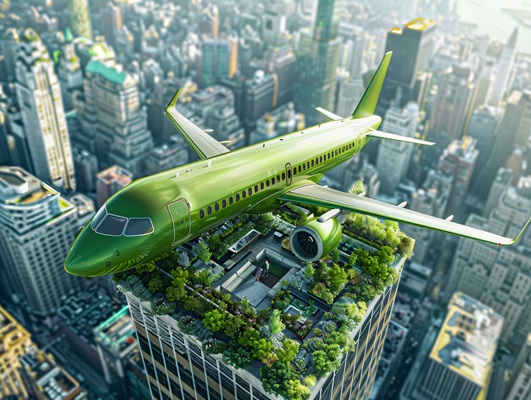Air New Zealand has announced its largest-ever purchase of Sustainable Aviation Fuel (SAF), securing more than 30 million litres from Neste. This SAF, which will be uplifted from Los Angeles and San Francisco airports through February 2026, is expected to deliver up to an 80% reduction in carbon emissions across its lifecycle compared to conventional fossil-based jet fuel, according to the press release.
The SAF is manufactured by Neste in Singapore using 100% renewable waste and residue raw materials, such as animal fat waste and used cooking oil, making it a key component of Air New Zealand’s sustainability strategy.
Air New Zealand Targets 1.6% SAF Share in FY25, Surpassing Previous Usage
According to Air New Zealand’s Chief Sustainability and Corporate Affairs Officer, Kiri Hannifin, the purchase will contribute 1.6% of the airline’s total fuel supply for FY25, allowing Air New Zealand to meet its SAF target for the year. This marks a significant increase from the volume of SAF used in FY24, representing more than four times the previous year’s SAF usage.
“While 1.6% is still a small proportion of our total fuel use, it’s four times more than we carried last year. I’m thrilled with this progress,” said Hannifin. “Like all airlines, we urgently need to reduce our reliance on fossil fuels. Securing higher volumes of SAF year after year is critical to achieving this goal.”
Global Momentum Builds for SAF Adoption and Policy Support
Hannifin noted that momentum for SAF production and policy development continues to accelerate globally, particularly in the Asia-Pacific region. While Air New Zealand is actively working at the global and industry levels to increase SAF usage, the airline is also advocating for supportive SAF policies in New Zealand to encourage domestic production.
“We’re seeing more governments moving towards low-carbon aviation policies to support their economies, and we’d love to see similar efforts here in New Zealand to ensure we don’t fall behind in the transition to lower emissions fuels,” Hannifin added.
Air New Zealand Sets 10% SAF Target for 2030, Explores Domestic Production Feasibility
Air New Zealand is targeting a 10% SAF share by 2030 and has invested in feasibility studies to explore the potential for domestic SAF production from feedstocks like woody biomass. Hannifin emphasized the airline’s commitment to taking action, stating, “The climate crisis is worsening, and we must change course to protect our environment for future generations.”
Neste Reaffirms Commitment to SAF Partnership with Air New Zealand
Neste’s Vice President of Renewable Aviation Business, Alexander Kueper, expressed pride in supporting Air New Zealand’s efforts to reduce aviation emissions. “We are proud to support Air New Zealand’s efforts to increase their SAF usage as a key lever to reduce aviation emissions,” said Kueper. “We look forward to continuing our cooperation and helping Air New Zealand achieve its climate goals.”
Global SAF Production Grows, but Challenges Remain in Scaling Production
The International Air Transport Association (IATA) reported that SAF production volumes reached 1.3 billion litres in 2024, double the 600 million litres produced in 2023. However, SAF still accounted for just 0.3% of global jet fuel production, falling short of earlier projections of 1.9 billion litres for 2024 due to delays in ramping up key SAF production facilities in the U.S.





